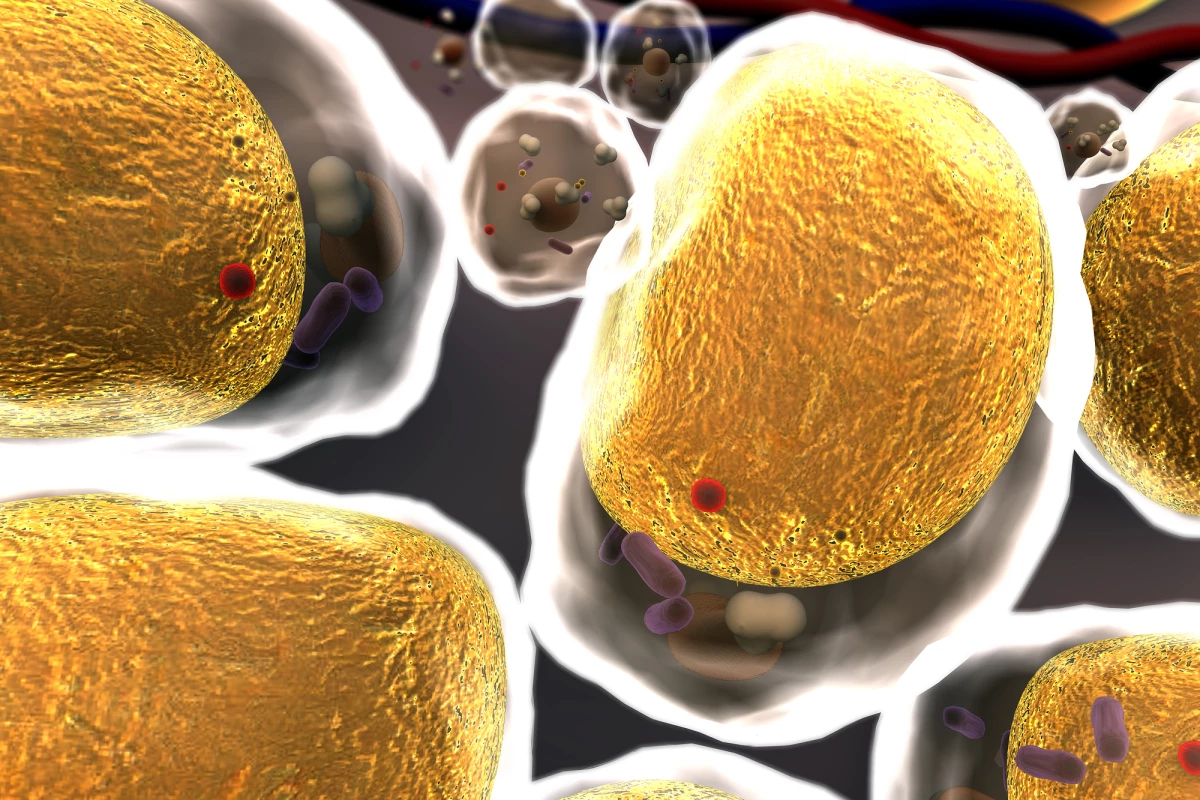The pursuit of next-generation treatments for obesity has scientists hunting for singular enzymes that can be targeted to switch off certain functions of the metabolism, and studies continue to turn up some promising candidates. The latest comes from scientists at Hong Kong Baptist University, who have identified an enzyme that is a key regulator of satiety and appetite, and shown how inhibiting its activity can protect against weight-gain in at-risk mice.
In recent years, we have seen obesity researchers uncover a wealth of useful information about how our metabolism works, and with this new understanding has come a string of potential new drug targets for obesity treatment. This includes enzymes that block the adverse effects of sugar, influence our energy expenditure, help us store fat and suppress our appetite when we're full.
The discovery from the authors of this new study also relates to our appetite, and an ability to feel full after a suitably-sized portion of food. The team's explorations led them to study a key signaling axis in energy and body weight regulation, which involves a hormone called growth and differentiation factor 15 (GDF15) and a neuron receptor in the hindbrain called GDNF-family receptor α-like (GFRAL).
GDF15 is known to send out satiety signals by binding to GFRAL, so the thinking is that by intervening in this process, drugs may help regulate food intake. The pathway is currently poorly understood, however, so the scientists conducted experiments to shed new light on the mechanisms at play.
This involved mice engineered to be missing an enzyme in these satiety neurons called MT1-MMP. The rodents were placed on a fat-rich diet to form obesity models, alongside a control group of healthy mice. After 16 weeks, the mice with depleted MT1-MMP ate 10 percent less food and gained 50 percent less weight. They also showed reduced glucose and plasma insulin levels. Together, the results indicate that depletion of MT1-MMP protects against obesity for mice on high-fat diets.
Further investigations revealed that the obese mice had heightened levels of MT1-MMP in brain regions called the area postrema and nucleus of the solitary tract, which are known to help regulate appetite and weight in humans. The scientists also showed that the enzyme suppresses satiety signaling by cleaving the GFRAL receptor from the surface of the neurons, preventing GDF15 from binding to it.
In another round of experiments, the scientists explored the therapeutic potential of targeting MT1-MMP by using an antibody to suppress its activity rather than using genetic engineering. This induced a variety of improvements in metabolic markers including glucose tolerance, body weight and food intake.
“The research findings have established the role played by MT1-MMP in regulating satiety, and they have provided preliminary indications that the proteolytic enzyme is a promising target for the treatment of obesity," said Dr Xavier Wong Hoi-leong, who led the research team. "Pharmacological inhibition of MT1-MMP could be a viable strategy for the development of effective pharmacotherapy for the treatment of obesity.”
The research was published in the journal Nature Metabolism.
Source: Hong Kong Baptist University




